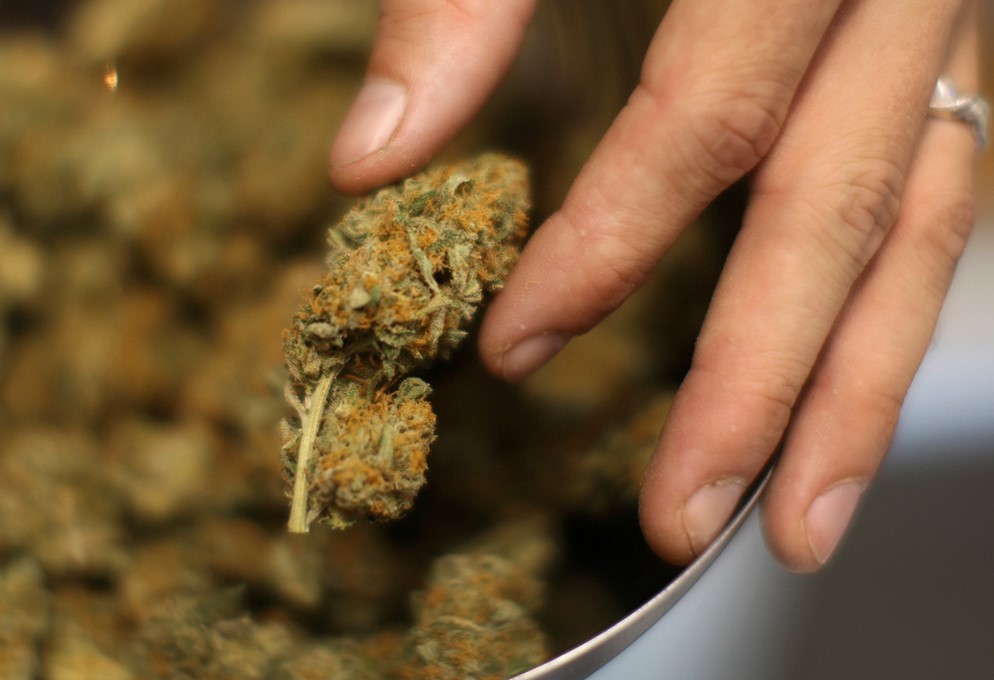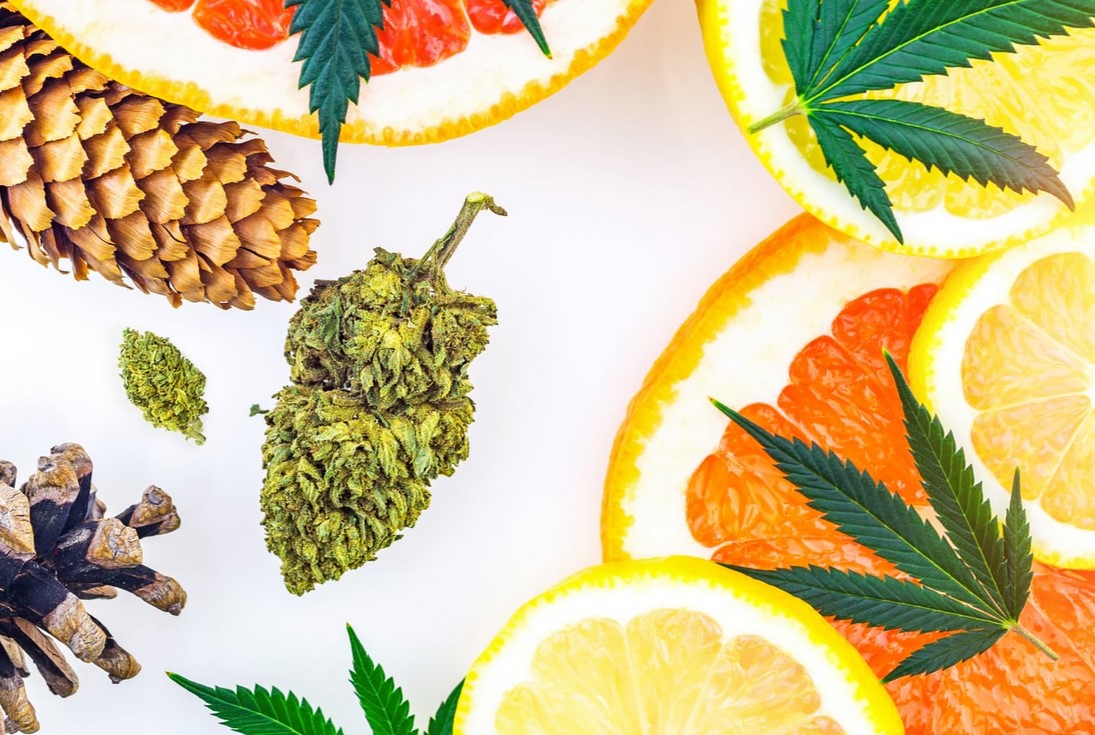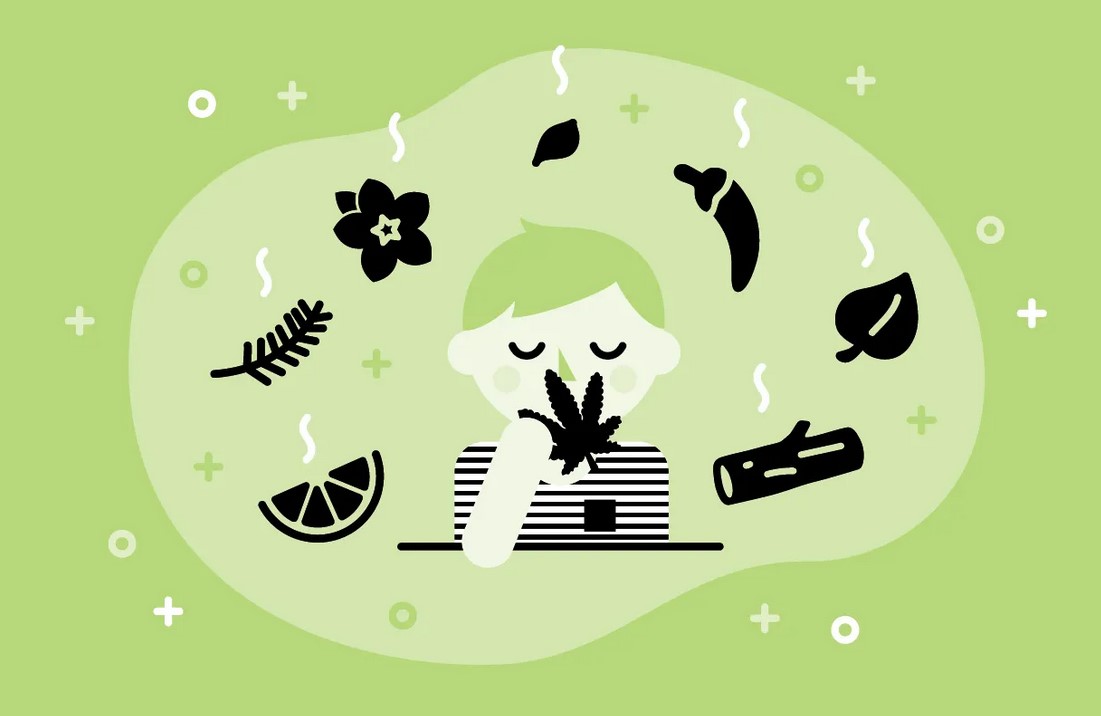Non classé
Terpenes for Anxiety: What You Need to Know
According to the Anxiety and Depression Association of America (ADAA), anxiety disorders affect over 40 million adults in the United States. Although cures for these problems exist, only 37% of people take any kind of treatment. The following are examples of common anxiety issues:
- Panic Disorder
- Generalized Anxiety Disorder
- Post Traumatic Stress Disorder
- Obsessive-Compulsive Disorder
- Social Anxiety Disorder
Medication is frequently used by physicians, such as SSRIs and benzodiazepines. Although the results of clinical trials have shown that these pharmacological therapies are effective, some people prefer to avoid using prescription medicines, especially when some of them may have negative effects.
Cannabis has been proposed as a therapy for anxiety disorders in recent years. Although most individuals think of the benefits of cannabinoids such as THC and CBD, terpenes have also been discovered to be beneficial.
So, can terpenes be useful for anxiety?
Terpenes: What Are They?
To comprehend terpenes, let’s look at an example. The fragrant scent of a marijuana souche like Mango Kush is popular among users. Terpenes are the chemicals that give this flavor. These pungent organic compounds may improve the high and have various medical uses.
Terpenes may also be found in all plant life and in some invertebrates. Many experts think that plants developed terpenes to keep herbivores at bay while also attracting predators that consume prevalent plant pests as a defense mechanism.
There are over a hundred different varieties of terpenes, each having its own set of health benefits and psychoactive effects.
Ethan Russo is a prominent researcher in the field of cannabis and cannabinoids, and one of terpenes’ most well-known scientific papers was published in the British Journal of Pharmacology in August 2011. It found that terpenes and cannabinoids work together to regulate and enhance each other’s effects in the endocannabinoid system (ECS).
The “entourage effect” is a hypothesis that cannabis compounds function better together than alone, based on the concept that plants evolved with one another to improve their chances of survival.
Terpenes are hundreds of different compounds that have diverse effects on the human body and mind. Myrcene, for example, is said to enhance the impact of THC, resulting in anti-inflammatory and analgesic (pain killer) properties as well as sleep induction. Russo’s study found that the terpenes rather than whether a strain was indica or sativa determined whether it made you sleepy or alert.

Terpenes for Anxiety: Best Options
We can’t settle on a single terpene as the answer to the question posed in the title. There are over a hundred different terpenes present in every marijuana strain, thus determining the best one for anxiety or any other disease is almost impossible. The fact is that we have barely started digging into terpene research.
What we do know is that essential oils have been utilized in holistic medicine for millennia. This is significant because terpenes are usually present in up to 80% of an essential oil’s chemical make-up.
Another thing to consider is that when marijuana is smoked, the terpenes and cannabinoids in it are commonly destroyed by the high temperatures of combustion. Vaping cannabis is more likely to provide the desired result than smoking it.
In any case, here is a list of terpenes that may be used to relieve anxiety.
Myrcene: Beta-myrcene is a monoterpene found in cannabis and is the most common terpene in the plant. It’s golden yellow and oily when in liquid form. Some argue that myrcene has relaxing and anti-inflammatory properties.
Limonene: Linalool is a terpene that can be found in many citrus fruits. It’s present in any strain with an orange or lemon scent, so it may be abundant in all of them. It’s the second most prevalent terpene in cannabis; according to research, it promotes anxiety and depression relief, bacterial infections fighting, and ulcers treatment.
Beta-Caryophyllene CB2 receptor agonist, and it has a black pepper odor. According to a study published in the Physiology & Behavior journal in 2014, beta-caryophyllene reduced anxiety levels in rodents forced to complete maze tasks. It’s a terpene that works particularly well with CBD and is found in hops, black pepper, and rosemary essential oils.
Linalool: The flowery scent of linalool makes it popular in perfumes. It’s a chemical produced by many plants including lavender, jasmine, and basil. Linalool has been found to decrease aggressive behavior in mice, according to a study published in the July 2010 edition of Phytomedicine by Linck et al.
Alpha-Pinene: This chemical can be found in pine trees and other coniferous plants. It is supposed to help with inflammation, bacterial infection, cognitive function, and anxiety alleviation. However, because all terpenes are currently under investigation,
What Terpenes Are Bad for Anxiety?
Can terpenes really cause anxiety? The answer is that we just don’t have enough evidence to directly answer the question.
In a 2018 study published in Frontiers of Neuroscience, researchers examined the link between anxiety and specific terpenes. They asked participants to select the most and least efficient strains for reducing anxiety using a questionnaire.
The second phase of the study was to examine how many strains yielded therapeutic effects. Researchers compared each strain’s terpene profile to those of other documented strains in order to determine the categories into which they would categorize them. Kush strains were found to be the most effective three out of four times, according to researchers.
Your metabolism, tolerance, mental illness history, and drug dosage can all influence how much CBD works for you.
Researchers examined the least-effective strains to see whether there was a link in terpene content. They discovered that guaiol, for example, showed up frequently in the least-favorite strains. Anxiety symptoms rose by 15% among those surveyed.
Unfortunately, this research is inconclusive. Researchers pointed out limitations owing to the use of self-reporting and because the study did not include external influences on anxiety.
In reality, users may react to the same strain in a variety of ways. Metabolism, tolerance, mental illness history, and drug usage all have an influence on how a person responds.

It’s difficult to know what, if any, terpenes are dangerous for anxiety because of this.
Which Marijuana Strains Should I Choose for Anxiety?
It’s now simpler to choose the finest cannabis strains after we’ve learnt some of the greatest terpenes for anxiety.
However, it’s vital to remember that these strains are only recommendations; there is no clinical evidence suggesting that they can cure or treat any particular anxiety disorders.
Blueberry Kush
Blueberry Kush, often known as “Blueberry OG Kush,” is a potent indica marijuana strain created by crossing Blueberry and OG Kush. This strain produces effects that produce a heavy bodily sensation, allowing customers to forget their worries and relax. Blueberry Kush is popular among patients who use medical marijuana to ease anxiety and sleeplessness symptoms.
Harlequin
Harlequin is probably the greatest medicinal marijuana strain available. It has a CBD:THC ratio of 5:2, with a high amount of myrcene and some beta-caryophyllene and alpha-pinene.
Cannatonic
This is a high-CBD variety, indicating that users may unwind without being drowsy. Cannatonic contains myrcene, limonene, beta-caryophyllene, and alpha-pinene as well as linalool.
Blueberry Cheesecake
This is a delectable strain that has a rich, earthy aroma and tastes as wonderful as it smells. It contains beta-caryophyllene, myrcene, and humulene with a trace of limonene. According to users, this strain soothes them while prompting them to crave a slice of blueberry cheesecake!
Remedy
This is yet another well-liked high-CBD strain that’s great for relaxing under pressure. Users claim that Remedy is an effective pain reliever due to its anti-inflammatory qualities. Myrcene, alpha-pinene, and beta-caryophyllene are all present in it.
Bubba Kush
Bubba Kush is a fantastic choice for those looking to get high because it has a THC concentration of 22%. Users will generally experience an uplighting high that relaxes them. It includes lots of myrcene, beta-caryophyllene, and limonene as well as linalool, alpha-pinene, and a slew of other terpenes.
veuve blanche
Green House Seeds created the strain White Widow to be a strong, white-flowered hybrid with THC levels of 15% and more. It was smuggled into the United States from Amsterdam coffee shops, where it is regarded for producing euphoria and relieving stressful ideas. It has a lot of myrcene, beta-caryophyllene, limonene, and alpha-pinene.
Using Terpenes for Anxiety
Aside from smoking strains, there are a variety of Terpenes Way Of Life methods to take advantage of terpenes’ advantages. The following are some of the most common techniques:
- Sublingual oils
- Vape liquids
- Comestibles
Users appreciate vapes, in particular. Terpenes are fragile above 300 degrees Fahrenheit (148.9 degrees Celsius), as previously said. Users may adjust the temperature of a vape device, ensuring that all of the terpenes survive.
CBD products that are high in terpenes but low in THC exist in abundance on the market.
Some individuals may be interested in using terpenes for anxiety, but they are afraid of getting high.Fortunately, there is a wide range of CBD products on the market that are high in terpenes and low in THC.
For a wide range of terpenes, full-spectrum CBD oils are recommended. Terpene-specific oils, on the other hand, are available for those looking for one particular flavor or goal. Just make sure to study the product information in the description.
Final Thoughts
Hopefully, those looking for a way to reduce anxiety can discover one of the marijuana strains listed above. Although we’ve only included five terpenes on this list, there are many more that may help people relax and de-stress.
Essential oils have long been associated with relaxation, and there have been several clinical trials that have found evidence of this. However, the degree to which they may assist with anxiety and stress is still unclear.
Furthermore, it’s important to remember that each person’s body chemistry is different. What works for one person may not work for the next. As scientific knowledge advances, hopefully we will fully understand what terpenes are good for anxiety in the future.


